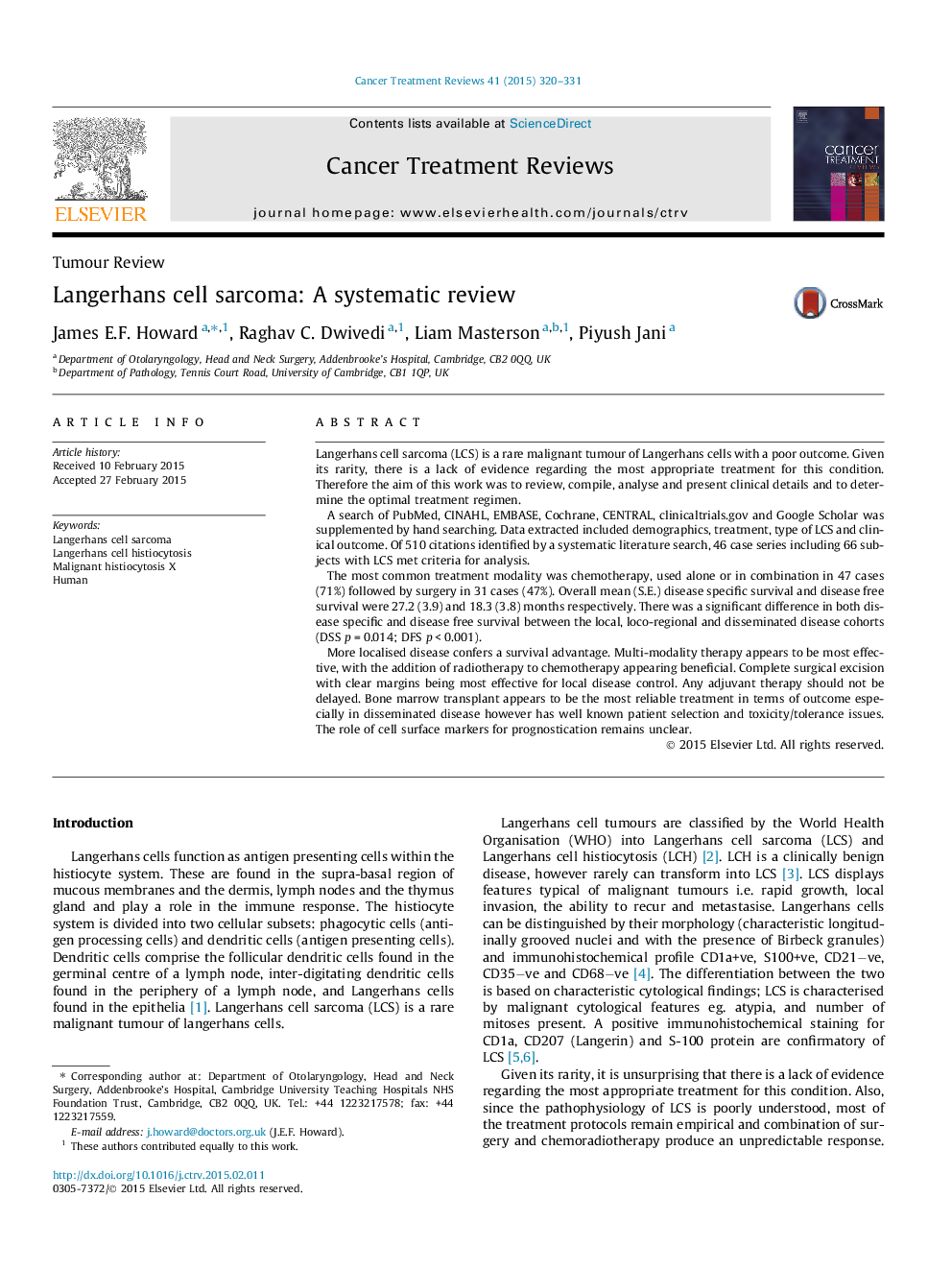| Article ID | Journal | Published Year | Pages | File Type |
|---|---|---|---|---|
| 3979800 | Cancer Treatment Reviews | 2015 | 12 Pages |
•Overall disease specific survival was 27.2 months (18.3 months disease-free).•Surgery has a role in localised disease where the aim is to obtain clear margins.•Further research is required to obtain a consensus on chemotherapeutic regimen.•Multi-modality management appears more effective than mono-therapy.•Bone marrow transplant appears the most reliable treatment of disseminated disease.
Langerhans cell sarcoma (LCS) is a rare malignant tumour of Langerhans cells with a poor outcome. Given its rarity, there is a lack of evidence regarding the most appropriate treatment for this condition. Therefore the aim of this work was to review, compile, analyse and present clinical details and to determine the optimal treatment regimen.A search of PubMed, CINAHL, EMBASE, Cochrane, CENTRAL, clinicaltrials.gov and Google Scholar was supplemented by hand searching. Data extracted included demographics, treatment, type of LCS and clinical outcome. Of 510 citations identified by a systematic literature search, 46 case series including 66 subjects with LCS met criteria for analysis.The most common treatment modality was chemotherapy, used alone or in combination in 47 cases (71%) followed by surgery in 31 cases (47%). Overall mean (S.E.) disease specific survival and disease free survival were 27.2 (3.9) and 18.3 (3.8) months respectively. There was a significant difference in both disease specific and disease free survival between the local, loco-regional and disseminated disease cohorts (DSS p = 0.014; DFS p < 0.001).More localised disease confers a survival advantage. Multi-modality therapy appears to be most effective, with the addition of radiotherapy to chemotherapy appearing beneficial. Complete surgical excision with clear margins being most effective for local disease control. Any adjuvant therapy should not be delayed. Bone marrow transplant appears to be the most reliable treatment in terms of outcome especially in disseminated disease however has well known patient selection and toxicity/tolerance issues. The role of cell surface markers for prognostication remains unclear.
